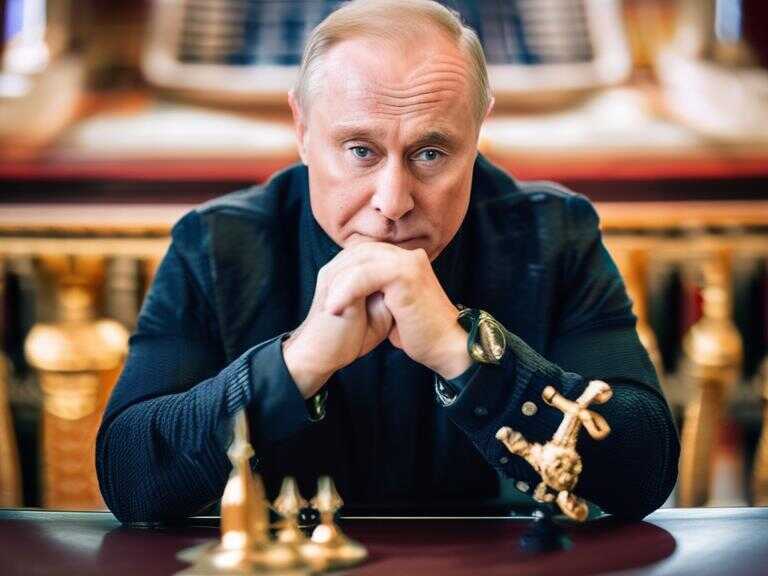
Putin's Quest for Immortality: Science, Doctors, and a Ruler's Ambition
Putin and Xi Jinping discussed the possibility of immortality through science and organ transplantation, reflecting a broader trend among aging leaders seeking to prolong their rule.

The pursuit of longevity has captivated humanity throughout history, from ancient myths to modern scientific advancements. The drive to extend life and maintain power is deeply ingrained in the human psyche, particularly among those who wield significant political influence.
Vladimir Putin, Russia's autocratic leader, has become synonymous with this pursuit, openly discussing his fascination with immortality and the potential of science to defy the natural order. Recent events have shed light on Putin's unwavering commitment to extending his lifespan and, consequently, his grip on political power. The world witnessed a candid exchange between Putin and Chinese President Xi Jinping during a military parade in Beijing, where they mused about the possibility of living indefinitely through technological advancements.
Putin's Longevity: A Quest for Immortality?
The conversation, captured by a hot mic, revealed the leaders' preoccupation with extending their lives. Putin asserted that human organs could be constantly transplanted, potentially leading to rejuvenation and even immortality. Xi Jinping echoed this sentiment, predicting that people might live to 150 years old by the end of the century. This candid exchange has sparked widespread speculation about the lengths these leaders are willing to go to prolong their reigns.
The Science of Life: Exploring the Boundaries of Human Potential
Putin's interest in longevity extends beyond mere health maintenance; it delves into the realm of pushing the boundaries of human potential. He is said to be deeply involved in research initiatives aimed at extending lifespan and exploring the complexities of aging. Mikhail Kovalchuk, a close confidant often described as Putin's favorite scientist, is spearheading Russia's efforts in this domain.
Kovalchuk has established several institutes with substantial state funding to invest in cutting-edge technologies, including organ printing using lab-grown cells. This ambitious pursuit reflects Putin's belief that science holds the key to unlocking the secrets of immortality.
Putin's eldest daughter, Maria Vorontsova, a trained endocrinologist, is also actively involved in research related to extending human health and longevity. She has received significant government grants to study these areas and is linked to Kovalchuk's genetic research program.
Political Power and the Pursuit of Immortality
The quest for eternal life among Russia's aging elite has permeated the country's pop culture, with satirical novels exploring the consequences of such an obsession. Ivan Filippov's novel "Mouse" depicts a scenario where researchers develop a drug to prolong Putin's life, with ultimately disastrous results.
Putin's unwavering focus on longevity is intertwined with his desire to maintain political power. He has made it clear that he intends to rule for many years to come, placing great faith in the advancements of modern medicine. His actions and public statements suggest that political power and personal immortality are deeply interconnected in his worldview.
The implications of Putin's pursuit of longevity are profound. It raises ethical questions about the limits of scientific intervention in human life and the potential consequences of extending lifespan indefinitely. Furthermore, it underscores the inextricable link between political power and the desire for immortality, highlighting a dangerous trend where the quest for eternal rule overshadows the well-being of society.
Share news















